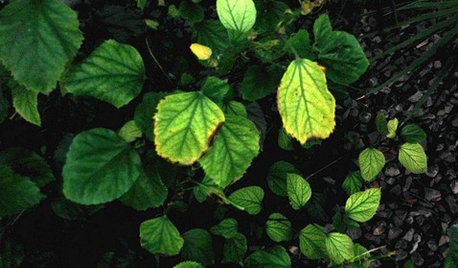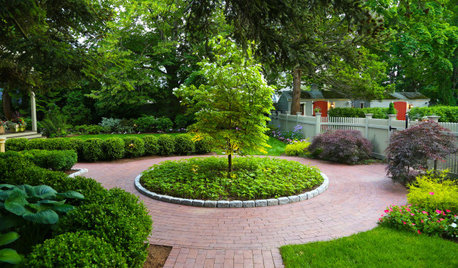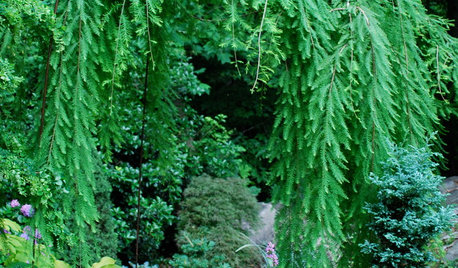What is wrong with my orange tree?
art_1
13 years ago
Related Stories

COLOR8 Color Palettes You Can't Get Wrong
Can't decide on a color scheme? Choose one of these foolproof palettes for a room that feels both timeless and fresh
Full Story
LIFEYou Said It: ‘Every Room Should Have the Right Wrong Thing’ and More
This week on Houzz we were inspired to break out of catalog styling ruts and let our design freak flags fly
Full Story
GARDENING GUIDESWhat's Wrong With My Plant? Leaves Often Hold the Clues
Learn how to identify common plant ailments by reading their leaves
Full Story
LIFEYou Said It: ‘The Wrong Sink Can Make You Hate Your Kitchen’
Design advice, inspiration and observations that struck a chord this week
Full Story
COLORExterior Color of the Week: 5 Ways to Make Orange Work for You
Whether you opt for a little or a lot, bold orange will bring drama to your home
Full Story
EDIBLE GARDENSHow to Grow 10 Favorite Fruit Trees at Home
Plant a mini orchard in fall, winter or early spring to enjoy fresh-off-the-tree fruit the following year
Full Story
HOLIDAYSHow to Care for Your Christmas Tree
Keep your tree looking lush until the last ornament is packed away with these tips for watering, using stands and more
Full Story
CHRISTMASReal vs. Fake: How to Choose the Right Christmas Tree
Pitting flexibility and ease against cost and the environment can leave anyone flummoxed. This Christmas tree breakdown can help
Full Story
GARDENING GUIDESWhen and How to Plant a Tree, and Why You Should
Trees add beauty while benefiting the environment. Learn the right way to plant one
Full Story
LANDSCAPE DESIGNThe Weepers and the Creepers: 10 Intriguing Trees for Your Garden
Bring something a little different to your landscape with a tree that dives, twists or crawls
Full Story





hoosierquilt USDA 10A Sunset 23 Vista CA
art_1Original Author
Related Professionals
West Milford Landscape Architects & Landscape Designers · Wixom Landscape Architects & Landscape Designers · San Juan Landscape Architects & Landscape Designers · Paradise Landscape Architects & Landscape Designers · Anderson Landscape Contractors · Coeur d'Alene Landscape Contractors · Commack Landscape Contractors · Fairfield Landscape Contractors · Indianapolis Landscape Contractors · Long Beach Landscape Contractors · North Highlands Landscape Contractors · Snoqualmie Landscape Contractors · The Woodlands Landscape Contractors · Reisterstown Landscape Contractors · Jericho Stone, Pavers & Concretehoosierquilt USDA 10A Sunset 23 Vista CA
silica
art_1Original Author
rhizo_1 (North AL) zone 7
art_1Original Author
tantanman
rhizo_1 (North AL) zone 7
art_1Original Author
art_1Original Author
gardenlen
don_in_ct
art_1Original Author
hoosierquilt USDA 10A Sunset 23 Vista CA
art_1Original Author
tryinginfla9b
art_1Original Author